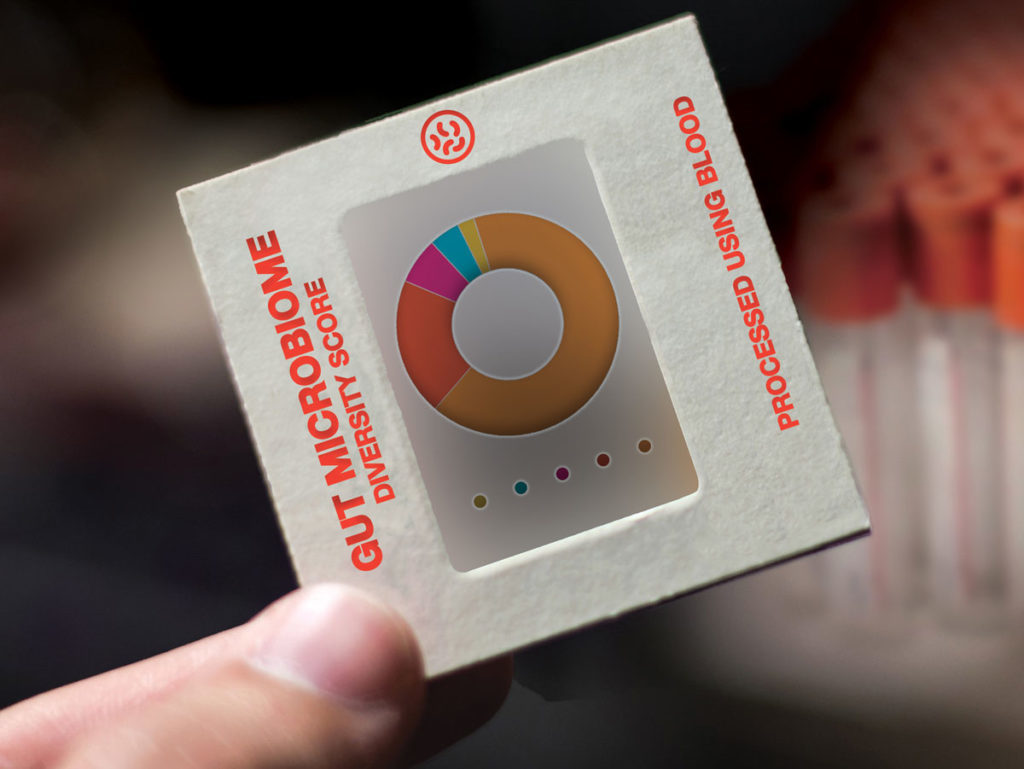Using Blood to Predict Gut Microbiome Diversity
 isbscience.org/news/2019/09/02/using-blood-to-predict-gut-microbiome-diversity/
isbscience.org/news/2019/09/02/using-blood-to-predict-gut-microbiome-diversity/
ISB researchers can predict the alpha diversity of an individual’s gut microbiome by looking at metabolites in the blood.
ISB researchers can predict the diversity of an individual’s gut microbiome by examining metabolites in the blood. This robust relationship between host metabolome and gut microbiome diversity opens the door for a fast, cheap and reliable blood test to identify individuals with low gut diversity.
The findings were published in Nature Biotechnology.
“Without detailed information about host health and microbiome composition, defining a healthy gut microbiome has been difficult,” said Dr. Nathan Price, associate director and professor at ISB and co-corresponding author of the paper. “Our findings allow us to evaluate the structure of the microbiome through the lens of host physiology. We believe the microbiome’s reflections in the host are the best way forward for determining what is a healthy microbiome.”
Targeting specific metabolites
By analyzing the de-identified multi-omic data from several hundred consenting participants in a consumer scientific wellness program, researchers found they can predict the health-associated alpha diversity of the gut microbiome by using a model trained on 40 circulating blood metabolites. Additionally, they can classify people with dangerously low gut diversity — potentially susceptible to diseases like Clostridium difficile (C. diff) — using an 11-metabolite model.
Interestingly, the relationship between metabolites and gut microbiome diversity remained consistent except for people classified as extremely obese.
“The loss of predictive power for morbidly obese participants indicates that they may be in a different metabolic regime, perhaps due to inflammation or a leakier gut,” said Dr. Sean Gibbons, assistant professor at ISB and a co-corresponding author on the paper.
‘Goldilocks zone’ for gut microbiome diversity
ISB’s research suggests there is a “Goldilocks zone” for gut diversity, where depleted diversity points towards diarrhea and inflammation, while elevated diversity is associated with constipation and toxic protein fermentation metabolites.

Co-corresponding authors Dr. Nathan Price and Dr. Sean Gibbons.
In the clinical setting, established blood tests remain the most commonly used metric for evaluating individual health. ISB researchers found almost no association between gut diversity and these clinical tests, suggesting that existing clinical assays are not useful for measuring the structure of the gut microbiome..
“This means we’re not yet looking in the right places if we want to define health in the context of the microbiome,” said Gibbons. “The host-microbiome interface seems to be best reflected in a handful of small molecules in the bloodstream.”
A logical next step from this paper is developing a clinical blood test that can classify patients with low gut diversity. “The ability to quickly and accurately determine the diversity of a patient’s microbiome is important, as depleted gut diversity is a risk factor for common hospital acquired infections like C. diff,” said Price.





